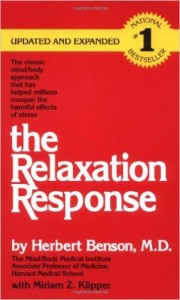There is so much misunderstanding out there about what relaxation really means and I’d like to clear a few things up.
In the work I have done as a massage therapist and also in helping people to get relief from stress, adrenal fatigue and burnout, I regularly ask people what they do to relax.
The 3 most common responses I hear are
- exercise
- watching some tv in the evening
- nothing – I don’t have time.
The responses very much in the minority are things like
- meditating
- restorative yoga
- breathing techniques.
After hearing hundreds and hundreds of responses like this I could see that there was a misinterpretation in what relaxation actually is (in terms of the body’s physiological response) and that many people are not valuing the importance of their own relaxation needs.
I too was in this category a number of years back. I had always been fit and healthy but despite being a very sensitive person, I had not valued my deep relaxation needs highly enough and when the levels of stress in my life increased dramatically in 2009/10, I realised in hindsight that I did not have enough relaxation tools to bring my stress levels back down.
Firstly, relaxing (deeply) is not
- sitting for hours in front of television watching thrillers and crime shows
- drinking several glasses of wine while browsing the internet or social media sites
- clocking up hours of cardio time on the treadmill each week.
While these can be enjoyable past tmes and help take your mind off the day, these types of activities actually raise your cortisol levels (one of the stress hormones) instead of allowing you the chance to unravel and unwind in the way that your body needs.
While some of these activities are fine and certainly some time exercising is essential for our health, overdoing these kinds of things are counterproductive to your overall health.
Dr Herbert Benson who was an absolute pioneer for his time did a lot of research in the late 1960s about this very topic, what he came to term “the relaxation response”. He discovered that when people created this relaxation state in their body some of the many changes that occurred were:
- blood pressure lowered
- heart rate and pulse rate decreased
- breathing slowed down
- sympathetic nervous system activity decreased (ie less stress hormones being produced)
- parasympathetic nervous system activity increased (more calming hormones produced).
He did a lot of research in particular, with people practising transcendental meditation and his research showed that there were 4 main factors in these meditators that helpled to create this physiological change, essentially the relaxation response. These were:

As Dr Benson studied further, he discovered that actually only two of these were absolutely necessary in order to create “the relaxation response”:

There are many ways that you can create this relaxation response.
Dr Benson’s main suggestion is to sit quietly for 10-20 minutes twice a day. This is in line with many other ancient and current meditation and relaxation practices.
I also encourage you to consider all the small ways that you can relax and also subsequently create a relaxation response in your system.
- Research has shown that reading creates a calming effect in as little as 6 minutes, effectively a relaxation response.
- While you are working, stop for a minute.
Take 3-4 slow breaths using the attention on your breath as your focus point and let any tension in your body go. If any thoughts come up, release the need to follow them and let them go.
Dr Benson also makes the point that you can create a relaxation response while you are engaged in another type of activity, the main thing is that you invoke the two aspects talked about above that help to focus your mind.
- So for example, while you are cooking say a word in your mind, such as ‘peace’ or ‘calm’, continue to focus on that word for a few minutes as you cook.
- You could even do this while you are exercising. If you’re on a bike, with each revolution of the pedals you could be focusing on your breathing or saying the word ‘relax’ or ‘release’. Again, the point is to focus your mind no matter what you may be doing.
I do hope this has opened you up to understanding “relaxation” in a more meaningful way. With a little focus and attention, you really can get those benefits into your body in a way that you may have never done before.
Enjoy relaxing in a whole new way.
Lisa


